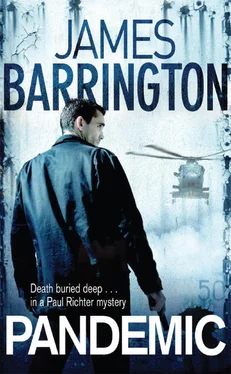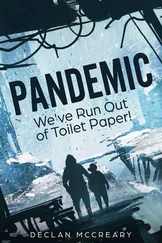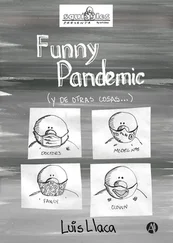‘I’ve no idea where you’re going with this,’ Richter said.
‘You’ll see, I promise you. Let me ask you something else – what’s the population of the Earth?’
‘We don’t have time for twenty questions, Nicholson. Get to the point.’
‘This is the point. The present population of this planet is around six billion, and it’s doubling about once every twenty-five years – that’s an exponential increase. That means about twelve billion by twenty twenty-five and twenty-five billion by the middle of this century. Some time in the next century the figure would reach half a trillion.’
‘So what?’ Richter demanded.
‘So a global population of that size would mean standing room only, everywhere, and I do mean everywhere. That’s a population density of about the same as Manhattan over the entire surface of the Earth, including areas that are presently uninhabited, like the Arctic, Antarctic, Siberia, Amazon Basin and the deserts. Actually, it couldn’t get that big, because the food supply would run out long before – you can’t build cities on the same land you grow crops on.’
‘What’s that got to do with the CIA and CAIP?’
‘Everything,’ Nicholson said. ‘In the late sixties and early seventies a bunch of studies were carried out here in the States, and they all came to more or less the same conclusion. Something had to be done to slow down the rate of population growth, and if possible to reverse the trend. Most of the studies suggested that the ideal size for the world’s population was between about two and a half billion and five billion people. Even the higher figure is a lot less than we’ve got right now.
‘The most immediate problem was food. Some analysts were predicting that if the population boom in certain countries continued, within the foreseeable future, in just a few decades, the whole world’s food supply wouldn’t ultimately be enough to feed everyone. America would end up having to supply wheat and other staples, but even that relief would only delay the inevitable. Even with all our resources, there simply wouldn’t be enough for everyone to eat, and whole sections of the world’s population would end up starving to death.’
‘They do now,’ Westwood objected.
Nicholson nodded. ‘Yes, but that’s usually for different reasons. In politically unstable countries the food that we and the voluntary organizations supply often doesn’t get through to the people who need it. It’s stolen by government officials who sell it, or it gets dumped in warehouses to rot, that kind of thing.’
‘This is fascinating, but irrelevant,’ Richter snapped. ‘Get to the point.’
‘It’s not irrelevant,’ Nicholson responded sharply. ‘It’s crucial, because it explains the idea behind CAIP. The areas where the population was growing the fastest were identified. Not surprisingly, the Third World was one of them. Africa had always had a high level of infant mortality, but better food and medicines were beginning to reverse that trend: modern science was actually helping create the problem. In the opinion of many analysts, Africa was on the verge of a population explosion, and somebody was going to have to do something about it, soon. And we did do something about it.’
‘What?’
Nicholson ignored Richter’s question. ‘Voluntary birth control had been tried in Africa, but that didn’t work. The men refused to use free condoms, and the women didn’t bother to take contraceptive pills. So a group of senior Company agents was tasked with finding a covert method of keeping those populations in some sort of check, just to slow down this dangerous growth.
‘We tried impregnating the wheat and other crops we supplied with drugs that would reduce fertility levels, but that seemed to have little effect, so we looked around at other things. Then the Department of the Army came up with what seemed at the time like a possible solution. It was radical, so we needed high-level Government approval before we implemented it.’
‘How high up?’ Westwood asked.
‘The Department of State,’ Nicholson answered.
‘And that was CAIP?’ Richter suggested. ‘What was it?’
‘CAIP was the most important operation the Company got involved in throughout the whole of the nineteen seventies. In fact, it was perhaps the most important covert operation of the whole century, and one day the world will be thankful for what we had the courage to do.’ There was almost a ring of pride in Nicholson’s voice as he uttered these words.
‘What were you bringing out of Africa?’ Westwood probed.
Nicholson looked at him, and shook his head, grimacing. ‘I said it before, your ignorance is total. We weren’t bringing anything out. We were taking something in.’
‘But the aircraft,’ Richter objected, ‘was flying westwards across the Mediterranean, away from Africa.’
Nicholson nodded. ‘Yes, but it was at the end of the mission, not at the start. We knew even then that we needed to cover our tracks, and that’s why we had to order the escorting fighter to shoot it down. The Learjet was supposed to end up in deep water and be lost for ever, but instead it veered off course. I’ve been waiting since nineteen seventy-two for somebody to stumble across it.’
‘So what was it you were taking into Africa?’ Richter demanded. ‘And what does CAIP stand for?’
Again, Nicholson’s voice rose and strengthened. ‘We needed to find a simple name that would be meaningless to anyone not involved. It stood for Central Africa Inoculation Program, and that’s exactly what it was.’
There was a moment of silence that seemed to stretch for an eternity as the two men stared at Nicholson. Then Richter glanced at Westwood, noticed his look of incomprehension. ‘I think I can see where this is going,’ he said, ‘but I just pray that I’m wrong. Tell us what you were injecting.’
Nicholson shook his head. ‘It was a good, simple idea. All we intended to do was reduce fertility levels, bring the population growth under some kind of control. Our only mistake was that we had no idea what the long-term effects would be. It was merely intended to inhibit reproduction – to act as a damper. We never realized—’
‘What were you injecting?’ Richter asked again. ‘What was in those flasks?’
And again Nicholson shook his head. ‘We couldn’t have predicted the long-term results. We should have spent more time on trials before we started the program, but there was a real sense of urgency at this end. We—’
Richter stood up and kicked Nicholson’s shattered thigh. ‘Just tell us,’ he shouted. ‘What the fuck were you injecting?’
Nicholson howled with renewed pain, grabbed again at his leg. He looked up at Richter. ‘You fucking bastard,’ he cried. ‘OK, OK,’ he continued quickly, as Richter stepped forward again. ‘It was an entirely new substance. The Army scientists had spliced a bovine virus onto a sheep virus, and then modified it further. It had just the characteristics we were looking for, so we tried it by using a smallpox vaccination program as cover. It was only a trial run. We were only out there a few weeks before the program was shut down.’
‘Shut down by whom?’ Richter demanded.
‘The authority came from the President himself. I think he was secretly informed about the program by one of the doctors involved in the African trial.’
‘OK, I’ll ask one more time. What were you injecting?’
‘A virus,’ Nicholson said. ‘The strain contained in the flasks was extremely concentrated, a mother strain, and its effectiveness was chemically reduced on site by a factor of over ten billion before we could inject it. That’s why we needed doctors and scientists to carry out the trial. But we never thought—’
Читать дальше












